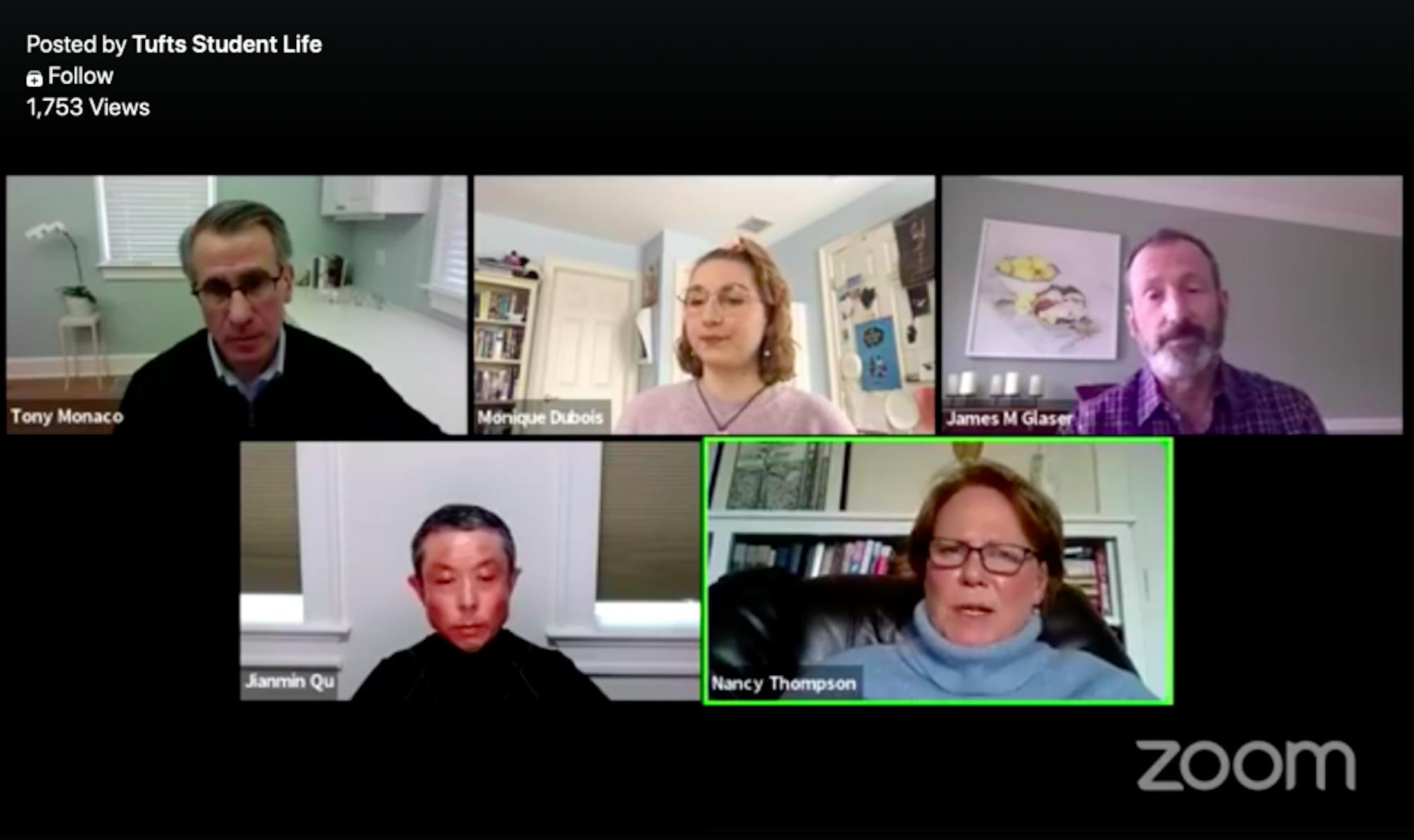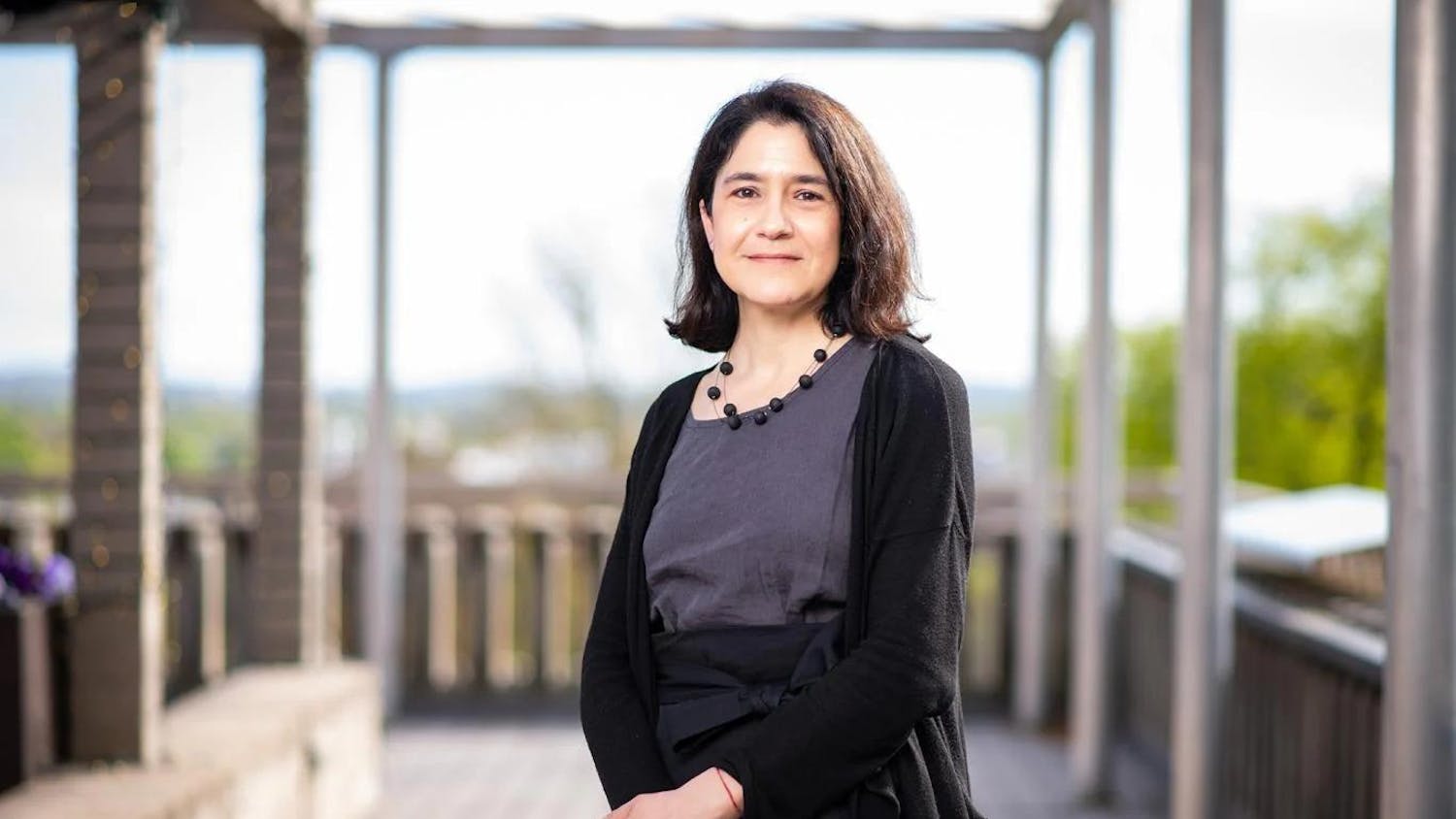Editor's Note: This event was live-streamed on Facebook at 12 p.m. EDT. Read the Daily's complete transcription here, or watch the video on Student Life's Facebook page here.
In a Facebook Live session on Monday afternoon that focused on answering students' questions regarding Tufts' response to the COVID-19 pandemic,University President Anthony Monaco was joined in conversation by Dean of Student Affairs and Chief Student Affairs Officer ad interim Nancy Thompson, Dean of the School of Arts and Sciences James Glaser, Dean of the School of Engineering Jianmin Qu and junior Monique Dubois, a Tufts Mutual Aid organizer and moderator of the talk.
Monaco began the stream by outlining Tufts’ top three priorities: to prevent an outbreak at Tufts, to continue excellent education even virtually and to use Tufts’ resources to aid the community.
“We have shifted personal protective equipment from research labs to Tufts Medical Center and have offered facilities for storage and certain services such as laundry. We led an effort by our engineering students and their colleagues at Harvard and MIT to replace the elastics of thousands of donated N95 masks so they can be used safely by hospital workers," Monaco said. "And we have made it known to our local host communities that we will make our campus available for their needs, such as drive-through testing, and various housing options that the healthcare community may require."
Thompson explained that she, along with her staff and the Office of Residential Life and Learning approved over 300 students out of approximately 600 who petitioned to remain on campus. Each request was evaluated on a person-by-person basis, and the main criteria were accepting students who were from countries rated at a level 3 risk level by the Centers for Disease Control and Prevention, as well as those who had extenuating financial circumstances.
“[The process] was difficult and there were probably cases where we didn't get the nuances. And that's actually where [Tufts Mutual Aid] and Monique were really helpful in bringing to our attention to students who were finding themselves in truly untenable situations,” Thompson said. “But it’s an imperfect process.”
The conversation then transitioned to updates about students’ financial aid with respect to COVID-19’s potential impact on families. According to Glaser, Tufts will accommodate aid accordingly. Additionally, the unused room and board that each family paid for will be reimbursed in the near future.
For students who face difficulty in figuring out how to afford their own housing and food, Glaserresponded that Tufts cannot provide room and board. He directed those students to the Dean of Student Affairs Office and the FIRST Resource Center, the latter of whose resources are being raised through philanthropy.
Concerns regarding academic performance and quality of education are also prevalent for both students and faculty as Tufts transitions to online-only courses. Qu confirmed that faculty from the Schools of Arts and Sciences and Engineering would discuss solutions to adjust the grading system, the decision of which was announced a few hours later.
Qu advised students with academic concerns and needs to contact the FIRST Resource Center, Student Accessibility Services and the Academic Resource Center, all of which will remain available to students. Qu added that Tufts has been working to accommodate students who reach out to optimize their learning as much as possible.
“For example, we have allowed students to take home laptops, to purchase WiFi hotspots and get headphones that are noise-canceling [and have] a microphone and other options so the student can actually have the environment to study,” Qu said.
Qu and Glaser both added that, if any student encounters issues with a professor during this period, they should proceed as they normally would by reaching out to specific department chairs, deans or Student Accessibility Services.
The state of summer courses is still uncertain. According to Glaser, while 10% of AS&E summer courses are already online, others may transition to being online as well, though it is not clear whether they will be online for both sessions. Glaser added that while the summer semester is not likely to host in-person classes, it is still too early to conclude anything about the upcoming fall semester.
Glaser explained that students studying abroad should have access to finishing up their programs online during the upcoming months, as well as foreshadowing the announcement that came later the same day that the number of online courses students take during the spring and summer semesters will not count towards their limit that may be used towards graduation.
Glaser added that plans for graduation will be made as soon as possible, and encouraged students with any creative ideas to reach out to the administrators directly.
Thompson encouraged students to continue to use theTufts Health Service as a resource for questions about their health and for access to tests, as well as monitor the frequently asked questions pages, which are constantly being updated.
Tufts administrators discuss university response to coronavirus pandemic

Tufts administrators participate in a remote conversation on March 23 to answer students' questions about the university's response to the coronavirus pandemic.





